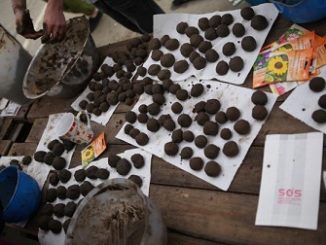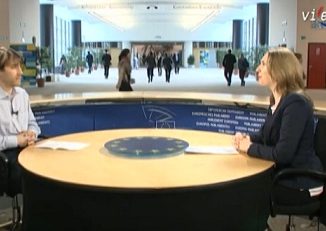
Last week, we unveiled the draft regulation on NGTs (New Genomic Techniques) by the European Commission. What is being proposed exactly? And what are the first reactions? Let’s delve into a brief overview. (Updated 17.00 on 22/06/23)
“New genomic techniques (NGT)” are introduced as an umbrella term for certain genetic engineering technologies aiming to alter the DNA more precisely than “old” methods by directing the changes to predefined loci of the genome. The most prominent and popular of these technologies is CRISPR-Cas.
“ ‘NGT plant’ means a genetically modified plant obtained by targeted mutagenesis, cisgenesis, intragenesis, or a combination thereof, on the condition that the NGT plant does not contain any genetic material originating from outside the breeders’ gene pool that temporarily may have been inserted during the development of the NGT plant.”
The last half sentence refers to the fact that the DNA of CRISPR-Cas and other constructs are introduced into the plant cells by means of old-fashioned genetic engineering such as agrobacterium tumefaciens. This foreign DNA is later removed from the engineered DNA as good as possible.
The concept of new, less risky classes of GMOs, based upon four new definitions, which would be introduced by this regulation to European legislation for the first time. None of these terms have been clearly defined so far nor is there a bulk of experience or scientific evidence to show that these types of GMOs have a proven record of reduced risk, or potential ecological or health hazards involved.
- “ ‘targeted mutagenesis’ means mutagenesis techniques resulting in modification(s) of the DNA sequence at precise locations in the genome of an organism;”
- “ ‘cisgenesis’ means techniques of genetic modification resulting in the insertion, in the genome of an organism, of an exact copy of genetic material already present in the breeders’ gene pool;”
- “ ‘intragenesis’ means techniques of genetic modification resulting in the insertion, in the genome of an organism, of a re-arranged copy of genetic material composed of two or more DNA sequences already present in the breeders’ gene pool; “
- “ ‘breeders’ gene pool’ means the total genetic information available in one species and other taxonomic species with which it can be cross-bred, including by using advanced techniques such as embryo rescue, induced polyploidy and bridge crosses; “
Equivalent to conventional plants?
Within this broad spectre of GMOs “NGTs Category 1” are deemed to be equivalent to conventionally bred plants and will no longer require a prior case by case risk assessment. A notification by the producers themselves to national competent authorities would be enough. This notice may include the demand to treat information submitted as confidential. No public label of the product as GMO will be required. Only the seed shall bear a label “new genomic technique category 1” and a public register will list all plants accepted as NGT1. No unique identifier of the GMO nor any other method of tracing the trait and its possible outcrossing will be required.
The proposed criteria to establish the equivalence of NGTs to conventional plants and their deregulation, allow for up to 20 different genetic modifications per plant of small insertions (each up to 20 nucleotides long), any number of deletions or inversions of DNA and any introduction of DNA sequences from within the so-called breeders gene pool. As a single exemption, herbicide tolerance of the GMO would disqualify it from category 1.
Any other new GMOs, which entail even bigger insertions of DNA, would still be subject to a case by case “risk assessment light” and to labelling. A special feature as regards labelling of these GMOs is the opportunity to add any promotional language regarding the sustainability of their properties.
Measures to prevent the contamination of non-GMO cultivation and processing are left to the individual member states. However, their right to opt out of approvals for cultivation of the GMOs entirely or for certain regions, which is part of the present GMO regulation, is withdrawn. Still, the proposed regulation upholds the ban to use any GMOs, including NGT 1, in organic farming.
The draft also proposes to delegate to the Commission the power of changing the crucial definitions in the Annexes of the regulation and to adopt implementing acts regarding the required notification information and risk assessments without the Parliament and the Council.
Environmental NGOs and industry dissatisfied
Corporate Europe declared that this proposal “will increase biosafety risks and abolish consumers’ freedom of choice. Since NGT seeds will be patented, this will erode farmers’ rights, and it will lead to a further monopolisation of the already highly concentrated seed market.”
They continued stating that the sustainability promise is only “based on industry’s claims, instead of real evidence”. Overall, the deregulation was a “give-away to the biotech seed firms like Bayer, Corteva and BASF”. This was the result of “highly biased consultation process” by DG SANTE, who “took industry’s point of view much more into account than organic farming, environmental or consumer group views.” In their view, this proposal will “massively raise biotech seed multinationals profits” who also are the main pesticide producers.
Although IFOAM welcomed the ban of NGTs in organic, they’re still concerned about how GMOfree production will be protected from contamination. Co-existence was still a huge challenge.
Those views are also shared by the European Non-GMO Industry Association, who warned against the “unleash (of) unlabelled and untraceable GMOs onto European fields, into the supermarkets and onto people’s plates.”
There are industry concerns that there will be legal uncertainty, which would still keep European plant breeders at what is seen as a competitive disadvantage.
Euroseeds, a representative body for large plant breeders, expressed appreciation to politico for “the intent” behind the proposal but strongly criticised its complexity and inconsistency, arguing that it fails to consider the practicalities of farming. it voiced significant concerns regarding the notification process, deeming it excessively complicated and time-consuming, which could impose a substantial burden on developers.
Euroseeds further criticised the ban on NGT use in organic farming, deeming it “illogical and discriminatory.” It also raised questions about the legal foundation for treating herbicide-tolerant NGT crops as conventional GMOs, effectively banning their usage.
First reactions from the Greens in parliament
According to politico, green lawmakers’ main concern revolves around the violation of the EU’s precautionary principle and the rights of operators and consumers to be informed about the contents of their food.
Politico reported that these lawmakers raised alarm over the lack of transparency for consumers of final products, despite some labelling requirements in the early stages of the value chain. They also expressed uncertainty regarding how those who wish to avoid GMO seeds would be able to prevent contamination throughout the production process.
Benoit Biteau also expressed great concern. The French Green MEP specifically pointed to the absence of labelling, traceability and a virtually automatic authorisation process with no real impact study on health and the environment.
Strong rejection in Germany
In the German political arena, the social democratic SPD has swiftly positioned itself in opposition to the proposed text. Mattias Miersch, Vice-Chairman of the SPD parliamentary group in the Bundestag, has strongly voiced his disagreement with the EU Commission’s intentions to loosen genetic engineering regulations. He argues that such a proposal “would be the end of freedom of choice for consumers and for the GMO-free food industry”. Also Green secretary of State for Agriculture Ophelia Nick rejected the draft while the liberal Minister for Research and Education Stark-Watzinger welcomed it.
The small farmer’s union Abl also published a critical press release after the proposal leaked, calling on “the federal government to reject the unacceptable legislative proposal”. Abl called the proposal a “blank check to the genetic engineering industry” and warned that it would mean “the end of GMO-free conventional and organic agriculture”.
According to Abl, the risk for small and medium scale farmers is huge. They would “no longer have any possibilities to protect their harvests from genetic engineering contamination because labeling obligations, traceability and liability claims would be abolished”.
Moreover, they predict a “wave of patenting” that “will make access to genetic resources even more difficult or impossible for small and medium-sized organic and conventional breeders” who will be “faced with extinction”.
Several German associations including Aurelia Stiftung, BUND, Boelw, and Bundesverband Naturkost Naturwaren also unequivocally rejected the proposal. They assert that the genetic engineering industry emerges as the major beneficiary, while the environment, freedom of choice for farmers and consumers, and the precautionary principle suffer as significant losers.
More to follow.
More
GMO Deregulation Delayed – Where Are We At, Where Might We Be Going?
New Genomic Techniques in the EU – on the Road to Deregulation?






1 Trackback / Pingback
Comments are closed.